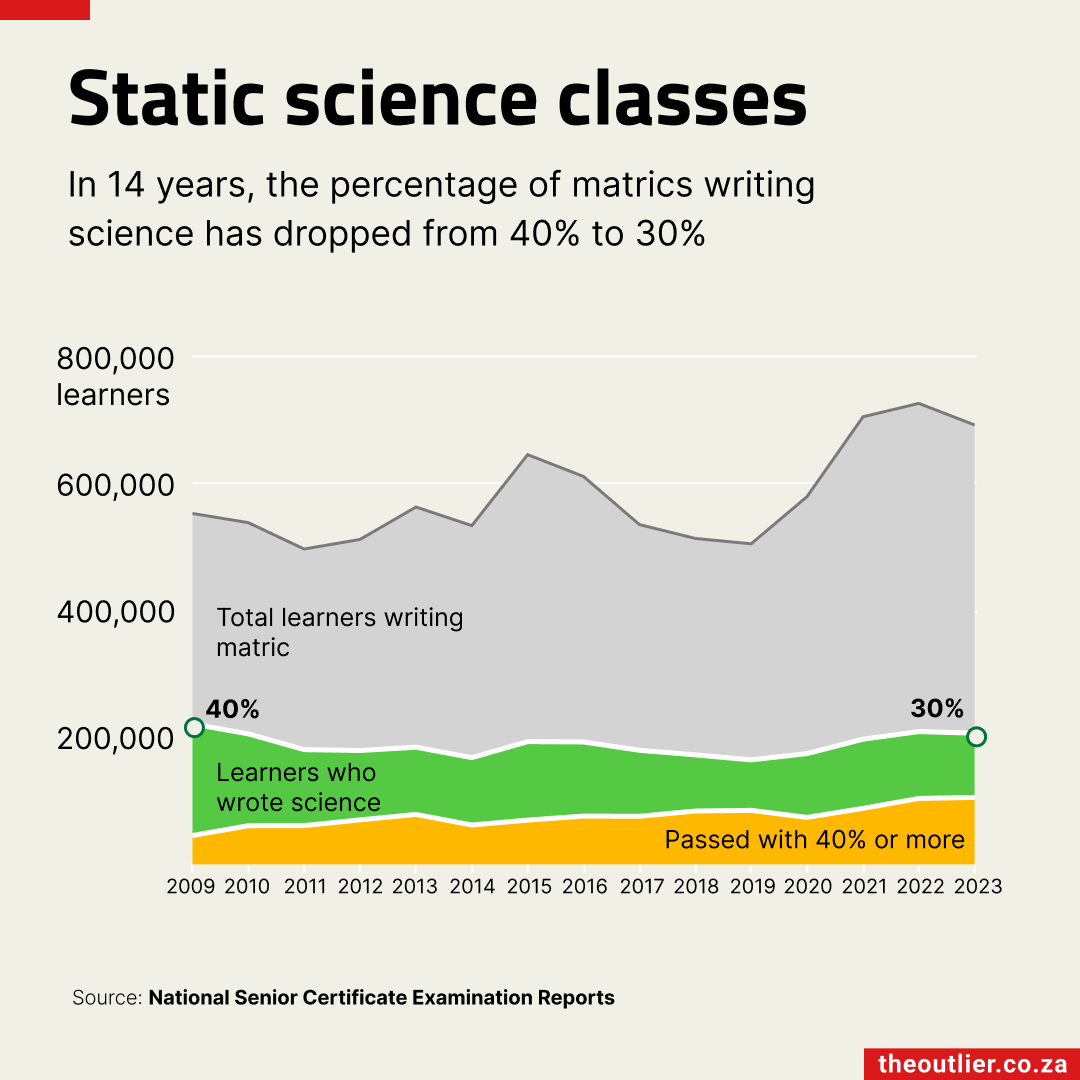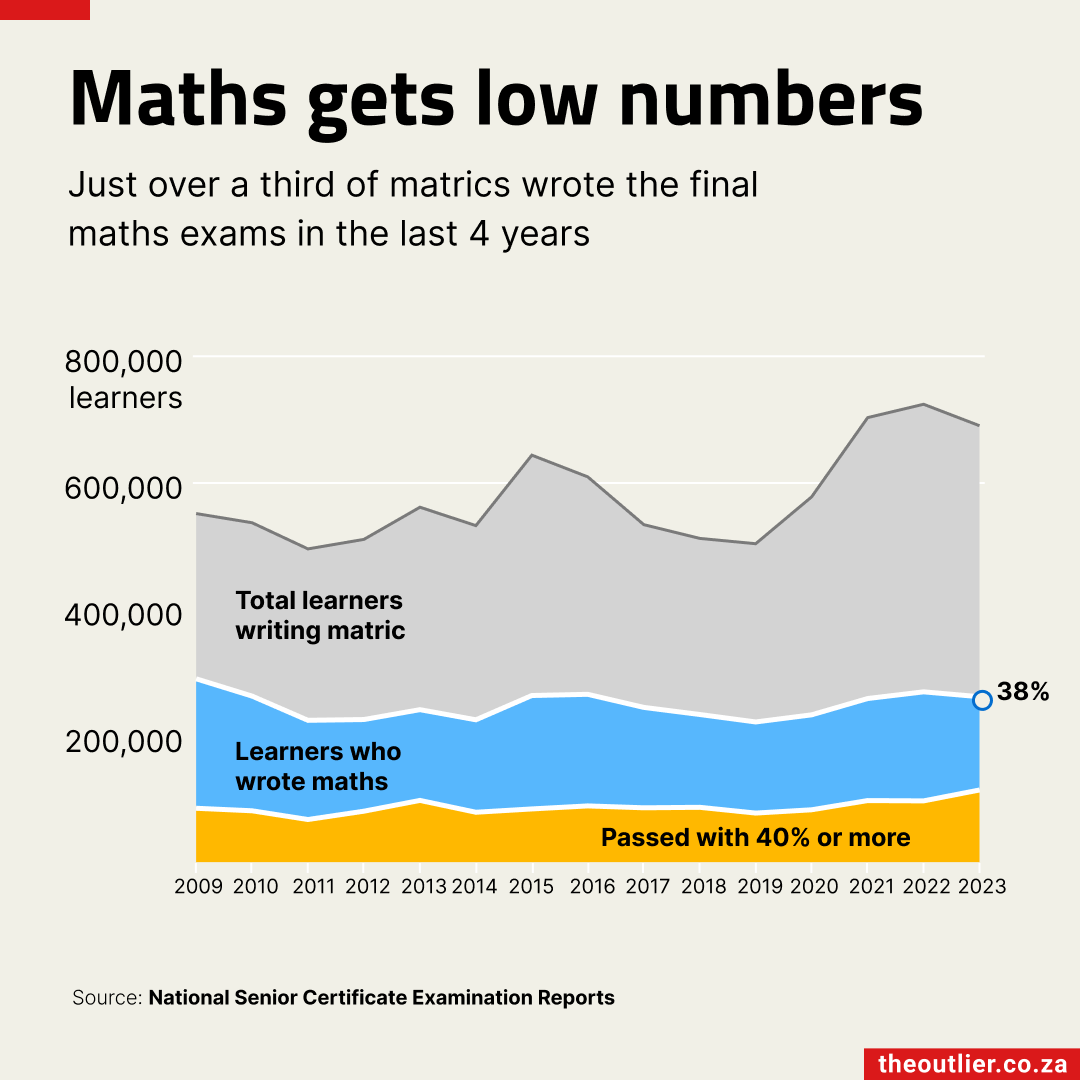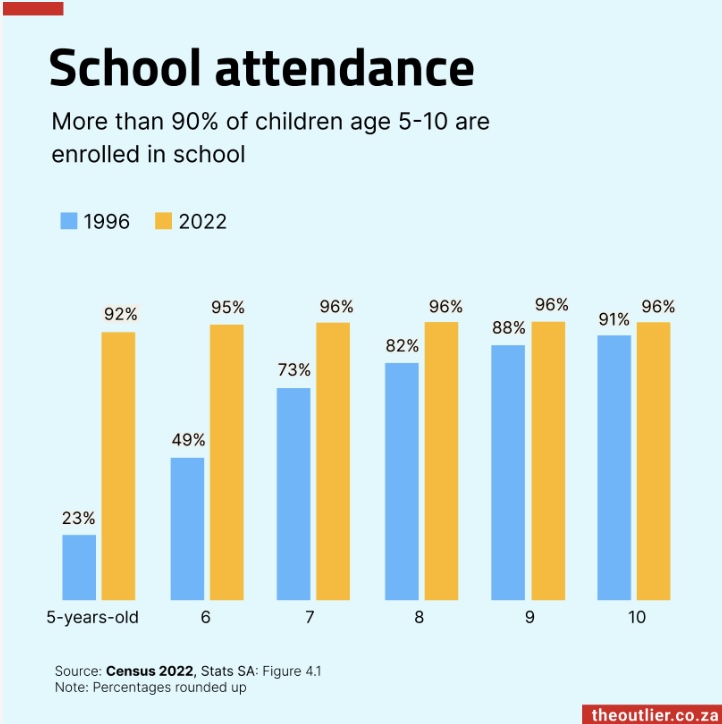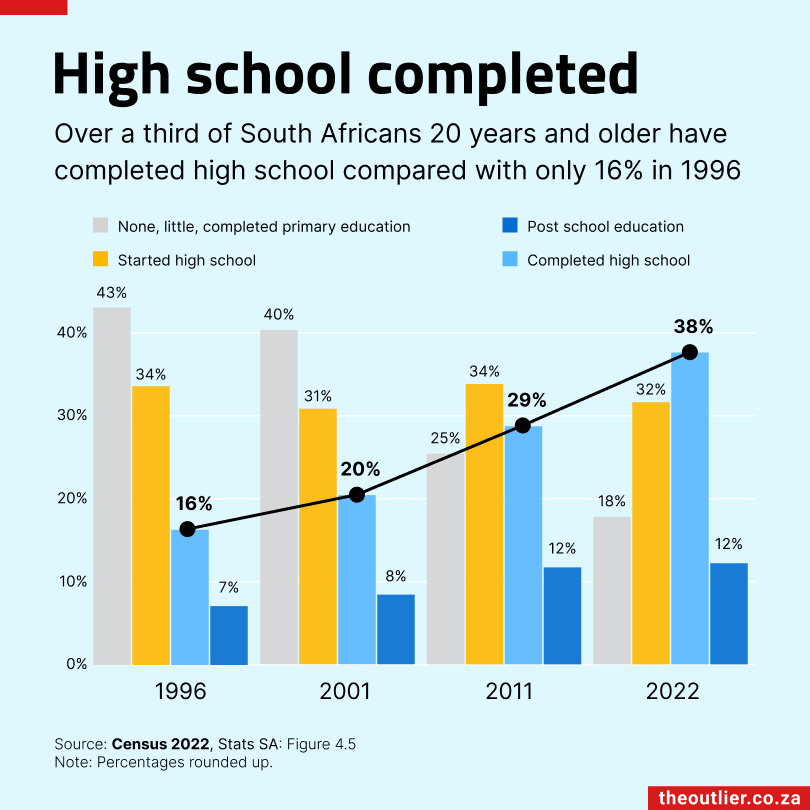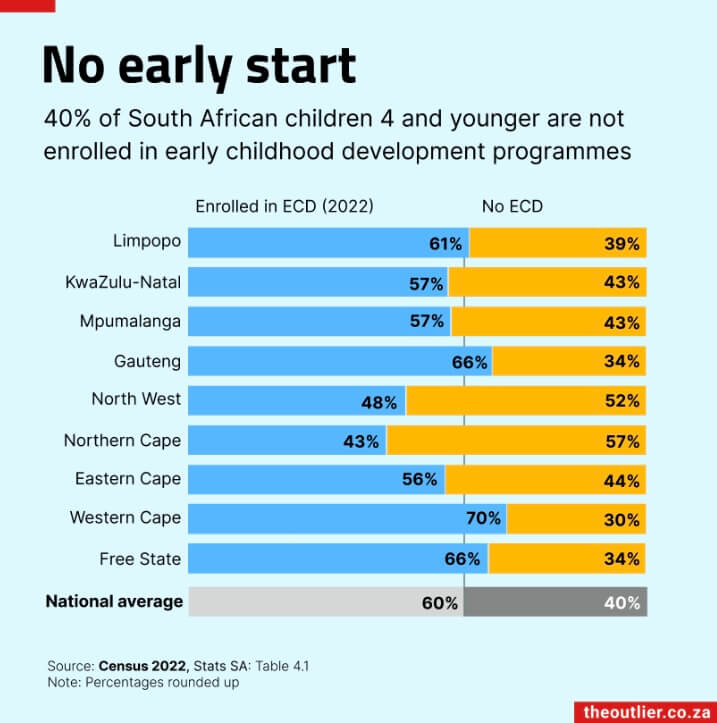Census 2022: Education in South Africa in 4 charts
No early start for 40% of the country’s young children.
Grade R learners attend their first day of school at Isiphiwo Public Primary in Khayelitsha. Photo: Ashraf Hendricks/GroundUp

Starting early
The first four years of a child’s life have a big impact on their future. Good early childhood development (ECD) programmes help to build language and numerical abilities that lay the foundation for achievement in school and future job prospects. The government’s goal is to ensure that all children have access to quality ECD programmes by 2030. It has a fair way to go, because 2.2-million children aged 0 to 4 do not attend an ECD programme. That’s 2 out of 5 of our under 5s, according to Census 2022, who will start formal school at a disadvantage to their classmates who attended playgroups, creches or pre-schools.
Attendance is highest in the Western Cape, Gauteng and the Free State, where two-thirds or more of children attend ECD programmes. It’s lowest in the Northern Cape and North West, where more than half of the children don’t attend a programme.

‘Big school’
ECD may need some attention, but there’s much better news when it comes to ‘big school’. School attendance across the country has improved significantly since 1996, with more than 95% of children between the ages of 6 and 10 now enrolled in school. In 1996, just 77% of children in this age group attended school.
Alas, there are still about 200,000 children between 6 and 10 who are not enrolled in school, according to Census 2022.
The official school-going age was lowered from 6 to 5 years old in 2004 and this appears to have improved the overall attendance rate, with 92% of 5-year-olds enrolled in school in 2022. From the age of 6 upwards enrolment rates are at least 95%.

Heading for high school
More good news is that many more people are finishing high school. The proportion of people who have completed high school has more than doubled from 16% in 1996 to 38% in 2022. The census records the highest level of education attained by people 20 years or older.
A third of learners start, but never finish, high school. But the proportion of people 20 years and older with only primary school or less education has dropped substantially from 43% in 1996 to 18% in 2022.
Post-school education has increased from 7% to 12%.
The percentage of people who finished high school in the provinces are:
- Gauteng 43%
- KwaZulu-Natal – 41%
- Mpumalanga – 40%
- Free State – 37%
- North West – 35%
- Western Cape – 35%
- Limpopo – 32%
- Northern Cape – 31%
- Eastern Cape – 27%

Tertiary choices
More than 5-million people have a post-secondary education qualification, according to Census 2022. It’s an increase of more than 2-million compared with the 2011 census.
The main fields of study in 2022 were:
- Education: 798,411
- Engineering: 633,345
- Business, economics and management sciences: 608,018
More than 70% of the people holding education qualifications are women. Engineering continues to be male-dominated – 78% of engineers are men but, in the last decade, the proportion of women engineers grew from 15% to 22%.
Women don’t seem to be making much headway in computer and information science, the proportion of women qualifying in this field has dropped from 43% to 39%.
Notebook
- Read more: What Census 2022 tells us about migration in South Africa
- These charts were first published in The Outlier newsletter on 20 October 2023. Sign up to receive our fortnightly dive into data here

